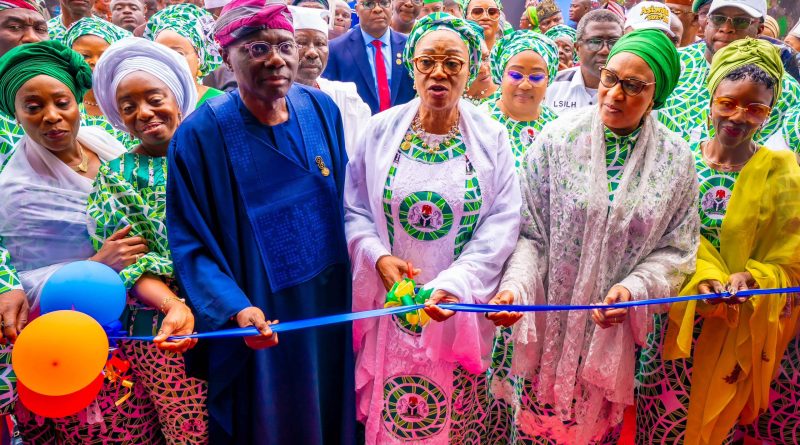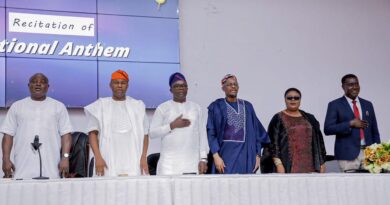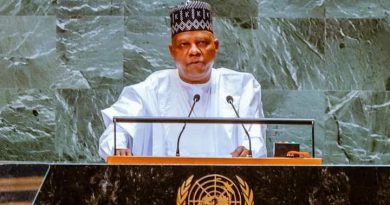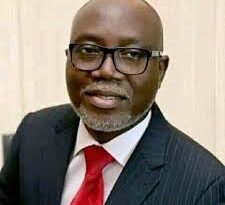Lagos Unveils Africa’s Leather Powerhouse: 10,000 Jobs, $250M In Exports
— Lagos State Governor, Babajide Sanwo-Olu, on Saturday inaugurated a state-of-the-art leather processing and manufacturing hub in Mushin, a development expected to significantly boost local production capacity, create 10,000 direct jobs, and drive Nigeria’s non-oil exports.
The facility, named the Oluremi Tinubu Leather Hub in honour of Nigeria’s First Lady, was formally commissioned by Senator Oluremi Tinubu during her three-day official visit to Lagos.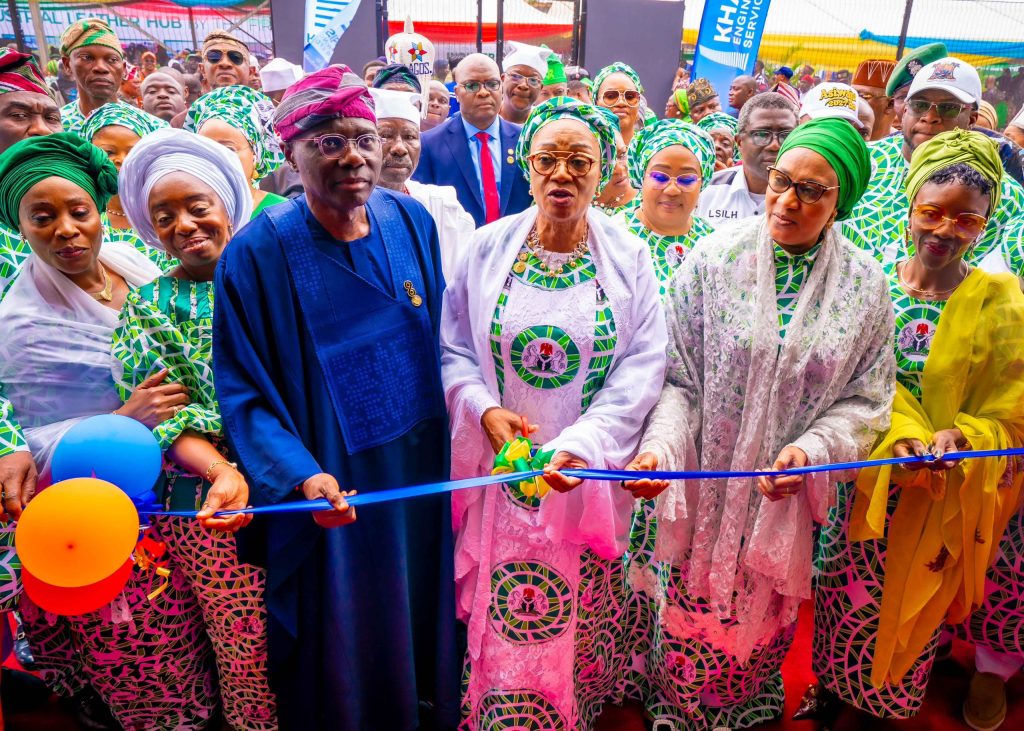
The factory is equipped with advanced industrial leatherwork machinery and is positioned to serve as a pivotal centre for West Africa’s leather industry.
Governor Sanwo-Olu disclosed that the hub is projected to generate more than $250 million in export turnover annually once it becomes fully operational.He also stated that over 150,000 artisans and entrepreneurs across the leather value chain will benefit from training and start-up support offered through the facility.
“This hub will transform Lagos into the leather logistics capital of West Africa,” the governor said.“It will not only enhance local production but also foster innovation, attract investments, and raise the standard of living for thousands of Lagosians.”
In a significant empowerment gesture, the governor announced that 70 percent of job placements at the facility have been reserved for women and youth. Driving Economic Diversification The First Lady praised the initiative as a clear demonstration of Lagos State’s trailblazing role in innovation and economic transformation. She noted that the facility aligns with President Bola Ahmed Tinubu’s Renewed Hope Agenda, which prioritizes industrialisation, innovation, and inclusive economic growth. “This leather hub is more than a manufacturing centre,” Senator Tinubu said.“It is a beacon of what is possible when government and citizens come together to turn challenges into opportunities. It will empower artisans, elevate small businesses, and foster a culture of excellence and global competitiveness.”
She encouraged beneficiaries—artisans, entrepreneurs, and traders—to take full advantage of the opportunities the hub offers, urging them to embrace continuous learning and global best practices. Enhancing MSME Capacity Commissioner for Wealth Creation and Employment, Hon. Akinyemi Ajigbotafe, said the leather hub is designed to solve long-standing issues affecting nano, micro, small, and medium enterprises (NMSMEs) that often lack access to modern equipment and infrastructure. “The facility provides shared production spaces, cutting-edge machinery, and functional training rooms,” Ajigbotafe explained.“These resources will enable local artisans to produce high-quality leather goods at scale, meet international standards, and reduce production costs.”
He added that the hub is poised to become a centre of excellence in leather craftsmanship, footwear production, and vocational training. A Holistic Industrial Ecosystem Governor Sanwo-Olu revealed plans to link the leather hub with Lagos’ growing network of fashion districts, e-commerce platforms, and rail infrastructure, ensuring efficient movement of goods and people. “From today, hides and skins that once left Nigeria unprocessed will be transformed in Lagos into world-class products — shoes, belts, bags — all proudly stamped ‘Made in Lagos, Made in Nigeria’,” he said. He reaffirmed his administration’s commitment to protecting and expanding the leather ecosystem through transparent regulation, infrastructure upgrades, and market linkages. “Our true success will not be in the headlines,” Sanwo-Olu said.“It will be measured by the cobbler in Mushin, the tanner in Oko-Oba, and the fashion designer in Yaba — whose livelihoods are uplifted through this initiative.”

